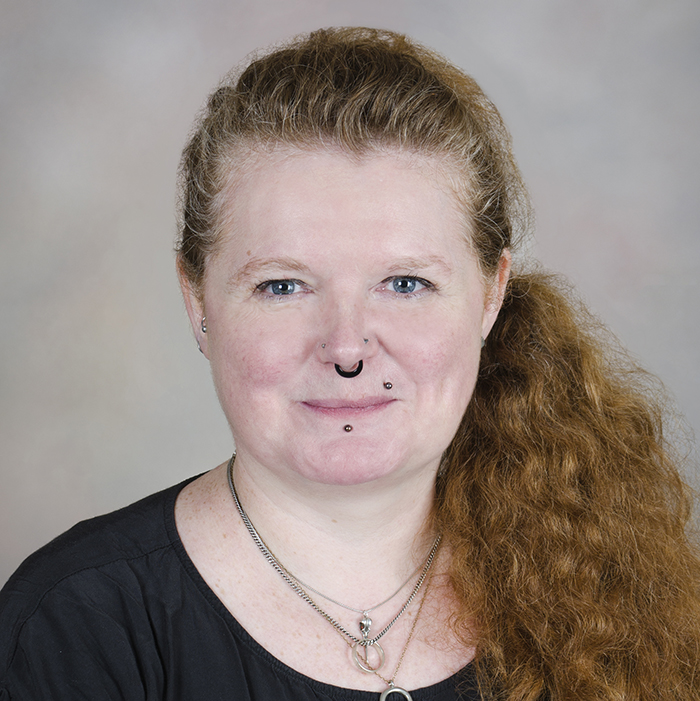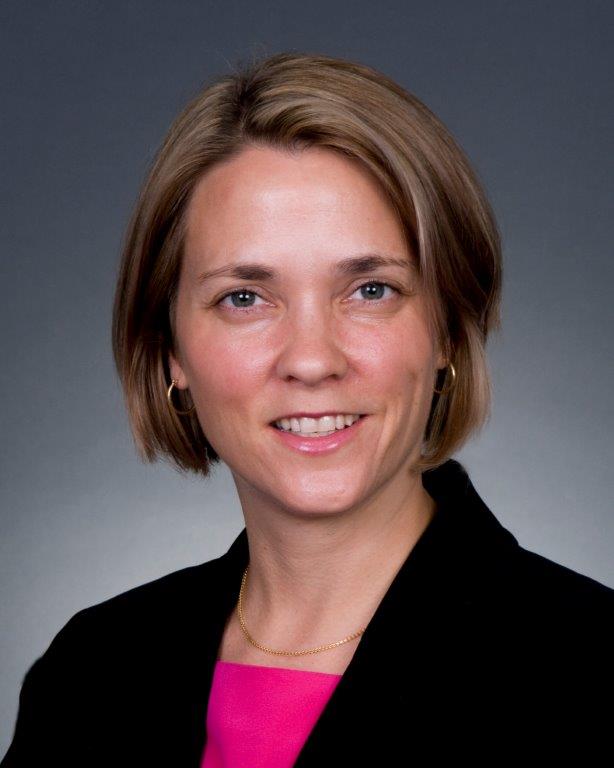Who We Are
The Center for Evidence-based Policy has helped guide decisions that improve the health of our partners’ constituents since 2003. Our leadership team works with Center clinical epidemiologists, researchers, policy analysts, professional support staff, and our partners to help bring good policy to life.

Pam Curtis is the Director of the Center for Evidence-based Policy. In addition to providing direction for the Center, she directs work pertaining to policy development and application, social indicators of health, consensus building, strategic planning and organizational development.
Prior to working at the Center, Ms. Curtis served as policy advisor to three-term Oregon Governor John Kitzhaber on children’s issues and human services. In this role, Ms. Curtis authored the Governor’s initiatives on juvenile crime prevention and early childhood education. Prior to joining the Governor’s staff, Ms. Curtis was the Interim Director and Field Manager for the Oregon Commission on Children and Families.
She has additional professional experience in local government and the private sector fields of substance misuse and addiction, adoption, child abuse prevention, youth development and policy, and organizational development. Ms. Curtis has authored articles and reports on policy coordination, system redesign, and comprehensive planning.
Ms. Curtis holds a master’s degree from the University of Wisconsin, and has received several honors for her work, including the Robert F. Utter Award for Civic Leadership, State of Washington, 2010; the Mental Health Award for Excellence, State of Oregon, 2002; the Distinguished Service Award, Citizen’s Crime Commission, 2001; and the Outstanding Service Award, Governor’s Council on Alcohol and Drug Abuse Programs, 1999.

Dr. King is the Director of Research at the Center for Evidence-based Policy where she oversees research methods and a variety of health services and clinical evidence research projects. She has been with the Center since 2007 and is also a Professor in the Departments of Family Medicine and Public Health and Preventive Medicine at Oregon Health &Science University (OHSU) in Portland, Oregon.
From 2005 through 2008 she was the Associate Director of AHRQ’s Eisenberg Clinical Decisions and Communications Science Center, part of AHRQ’s Comparative Effectiveness Program, at OHSU. Dr. King has been an author of and served as an advisory panel member and peer reviewer for multiple AHRQ Evidence-based Practice Center evidence reports.
Dr. King is a cum laude graduate of the School of Medicine at The University of North Carolina at Chapel Hill (UNC) where she also completed residency training in both Family Medicine and Preventive Medicine and a Master’s degree in Epidemiology. From 1995 through 1997 she was a Robert Wood Johnson Clinical Scholar at UNC. Dr. King was an Atlantic Fellow in Public Policy at the National Perinatal Epidemiology Unit at Oxford University from 1998 to 1999, studying maternity services, health policy and systematic review methodology. She completed a Robert Wood Johnson Generalist Faculty Scholars fellowship in 2007 with a focus on maternity health policy.
She is actively involved with the Cochrane Collaboration and the GRADE Working Group. Dr. King maintains a consulting and teaching clinical practice devoted to women’s health, maternal and newborn care.

Rhonda Anderson is a Pharmacy Policy Manager at the Center for Evidence-based Policy. She provides primary leadership for the Center’s Drug Effectiveness Review Project collaborative and serves as the lead policy subject matter expert for all pharmaceutical policy issues. She recently joined the Center after having served as the Deputy Division Director for Clinical Policy and Operations for the MO HealthNet Program (formerly Missouri Medicaid).
In Missouri, Ms. Anderson managed day-to-day administrative activities of the Medicaid program. As one of the Division’s primary resources of clinical expertise, Ms. Anderson was responsible for maintenance of the program’s clinical editing tools, including: developing prior authorization and clinical edits; continued expansion of the Preferred Drug List, performing evidence-based therapeutic class reviews; development and implementation of clinical and technological programs; and evaluating patient care plans to encourage appropriate medication utilization and identify medical necessity.
Ms. Anderson provided executive leadership for the Managed Care program, overseeing health plan contracting, rate setting, contract compliance, and contract procurement. In addition, Ms. Anderson managed the DME, Radiology, Optical, Laboratory and Hospital programs, and the Program Operations Unit, which administered Division’s waiver programs.
A native of Central Illinois, Ms. Anderson earned her pharmacy degree from St. Louis College of Pharmacy. Ms. Anderson has practiced pharmacy in both hospital and retail settings.

Scott Harvey is the Department Administrator at the Center for Evidence-based Policy. He joined the Center in February 2015. Prior to this, he worked in a variety of leading financial roles during his 17 years at OHSU. Some of the positions include: Assistant Director of Hospital Financial Services, Accounting Manager for the Hospital and the University and also Budgeting Director for the University.
His current responsibilities at the Center include managing the accurate and timely reporting of the financial statements, managing the budgets and forecasts of new and existing projects, tracking expenses and revenues, strategic financial planning for the Center, managing the operations of the Center, and also being a resource for contracts in which the Center is involved.
Scott is an active member of the Oregon HFMA Chapter and recently was the Treasurer for the chapter. He has B.S. in Business Administration from Boise State University.

Beth Shaw is a research director at the Center for Evidence-based Policy. Prior to joining the Center, Beth worked at the U.K.’s National Institute for Health and Care Excellence (NICE) as a methodologist, with expertise in evidence-based guidelines and performance measures. At the Center, Beth’s primary responsibilities are to lead the development of evidence reports to support policy making and with the other Center research directors, to ensure the use of robust methods of evidence synthesis for policy making. Beth also has a number of peer-reviewed publications, including systematic reviews and papers on methodological aspects of guideline and performance measure development.

David C. Radley is the Center’s inaugural Director of Data and Analytics. Dr. Radley has 18 years of experience in health policy evaluation, quality and performance measurement, and in public reporting and visualization of healthcare data. Prior to joining the Center, David served as scientific lead for the Commonwealth Fund’s Health System Performance Tracking initiative, where he was responsible for defining national, state, and sub-state performance evaluations; measure selection and development; procuring and analyzing relevant data; and curating performance information for visualization and public reporting. He has authored over 50 articles, issue briefs, and technical reports focusing on access to care, healthcare affordability, healthcare quality, health equity, and population health outcomes. Dr. Radley received his PhD in Health Policy from the Dartmouth Institute for Health Policy and Clinical Practice and M.P.H. from Yale University. As Director of Data and Analytics, Dr. Radley will direct data related research and build the Center’s capacity to meet the growing data needs of states.

Susan Stuard is the Director for State Technical Assistance at the Center for Evidence-based Policy where she provides leadership, support and insight to the Center’s state technical assistance projects. From 2008 to 2015, Ms. Stuard led THINC, the not-for-profit convening organization that established research-based criteria to enhance health care quality and value in the Hudson Valley. Prior to THINC, she was the director for technology policy development at the New York-Presbyterian Hospital and the vice president of regulatory affairs for the Greater New York Hospital Association. She has also held regulatory affairs and hospital operation roles at Memorial Sloan-Kettering Cancer Center. In addition, Ms. Stuard serves on the Board of Directors for the National Committee for Quality Assurance (NCQA). She holds an MBA from the Yale School of Management and a bachelor’s degree from Hamilton College.
Learn more about us and what we do.
Celebrating and Valuing Diversity
The Center strives to be a healthy and thriving work environment where everyone, from any background, can do their best work. Read our Diversity and Inclusion Plan.
Read our 2024 Annual Report.
Let’s get to work.
Interested in joining an evidence collaborative? Ready to start a custom policy project?
Get in touch to learn more about how we can support your policy design process.